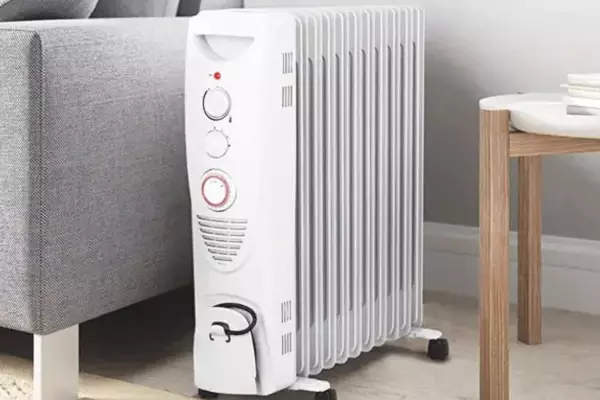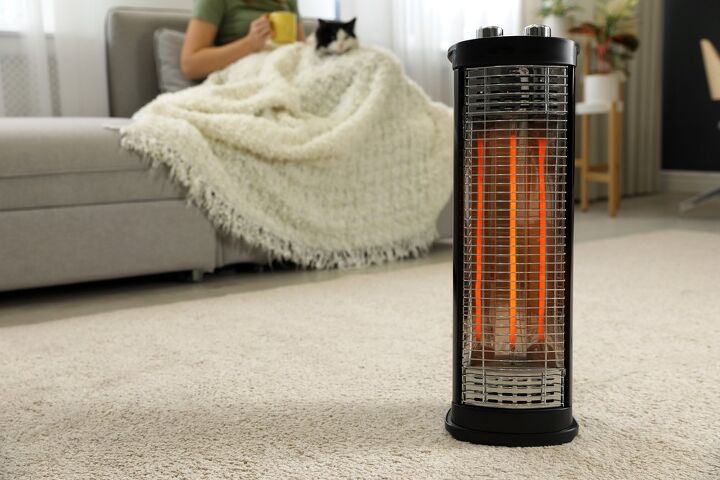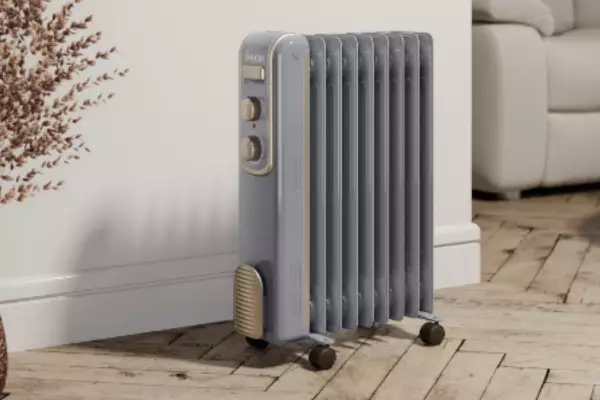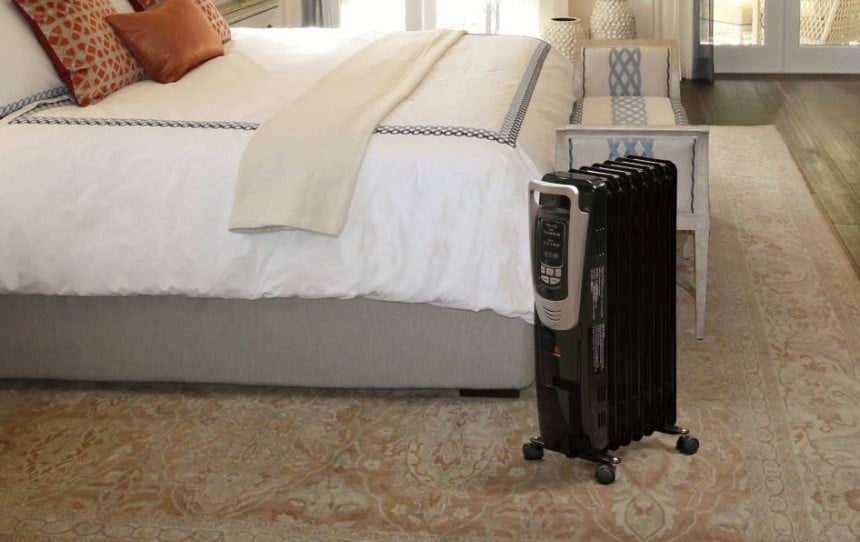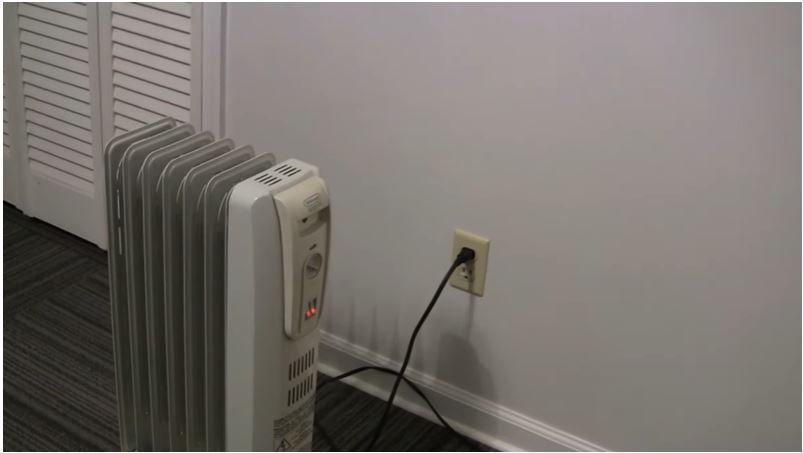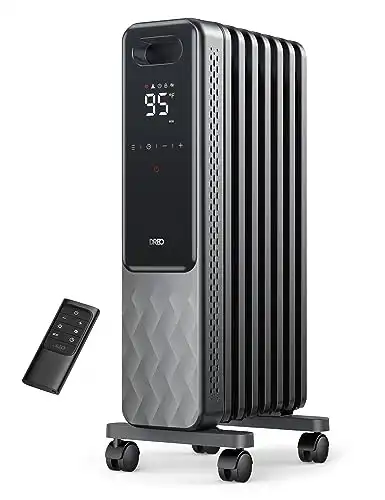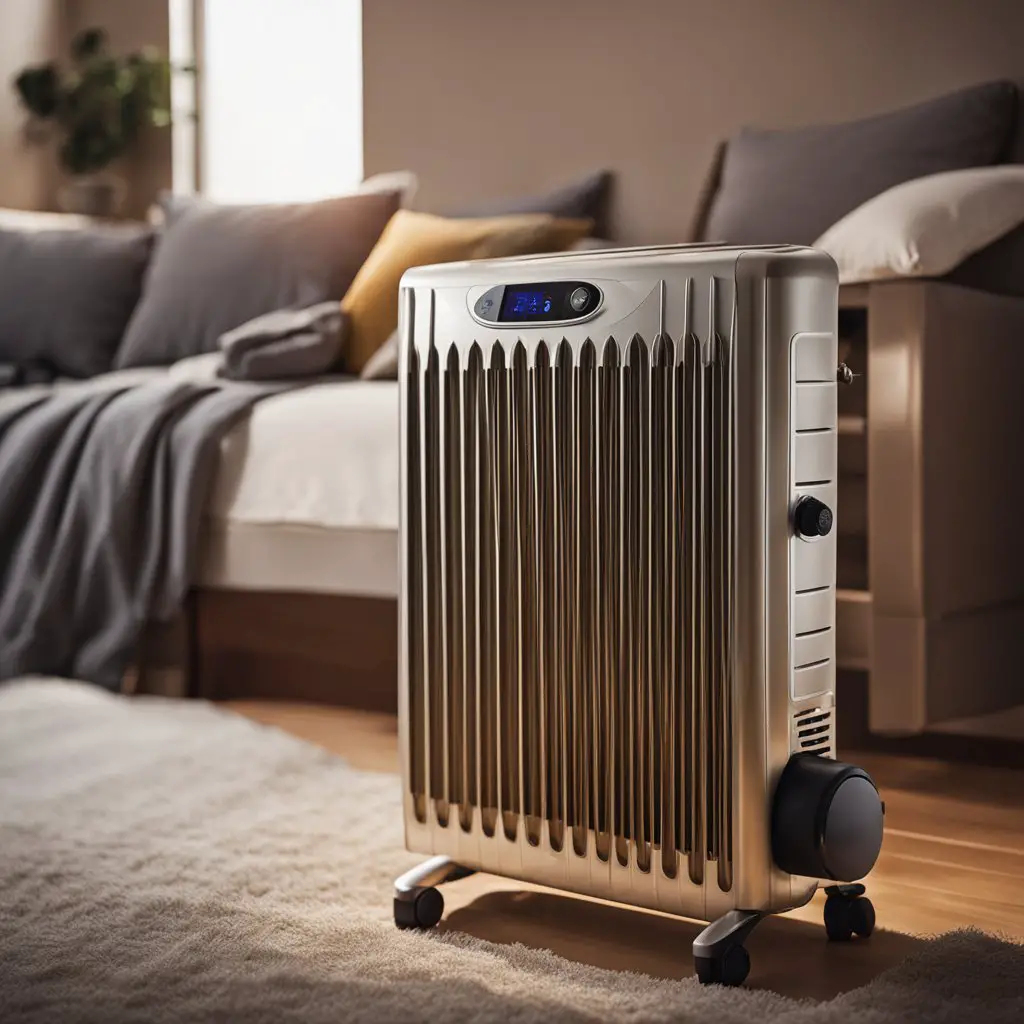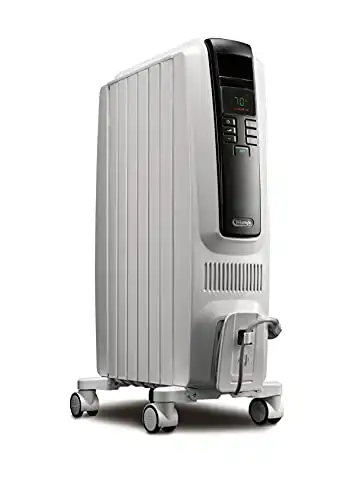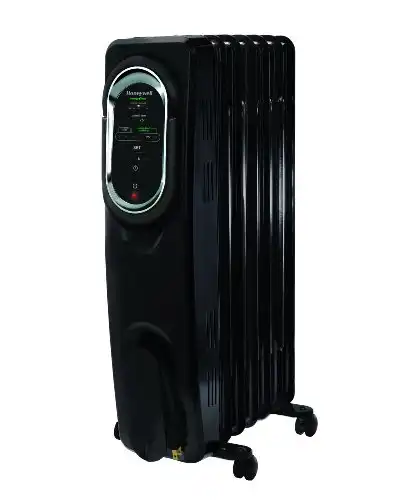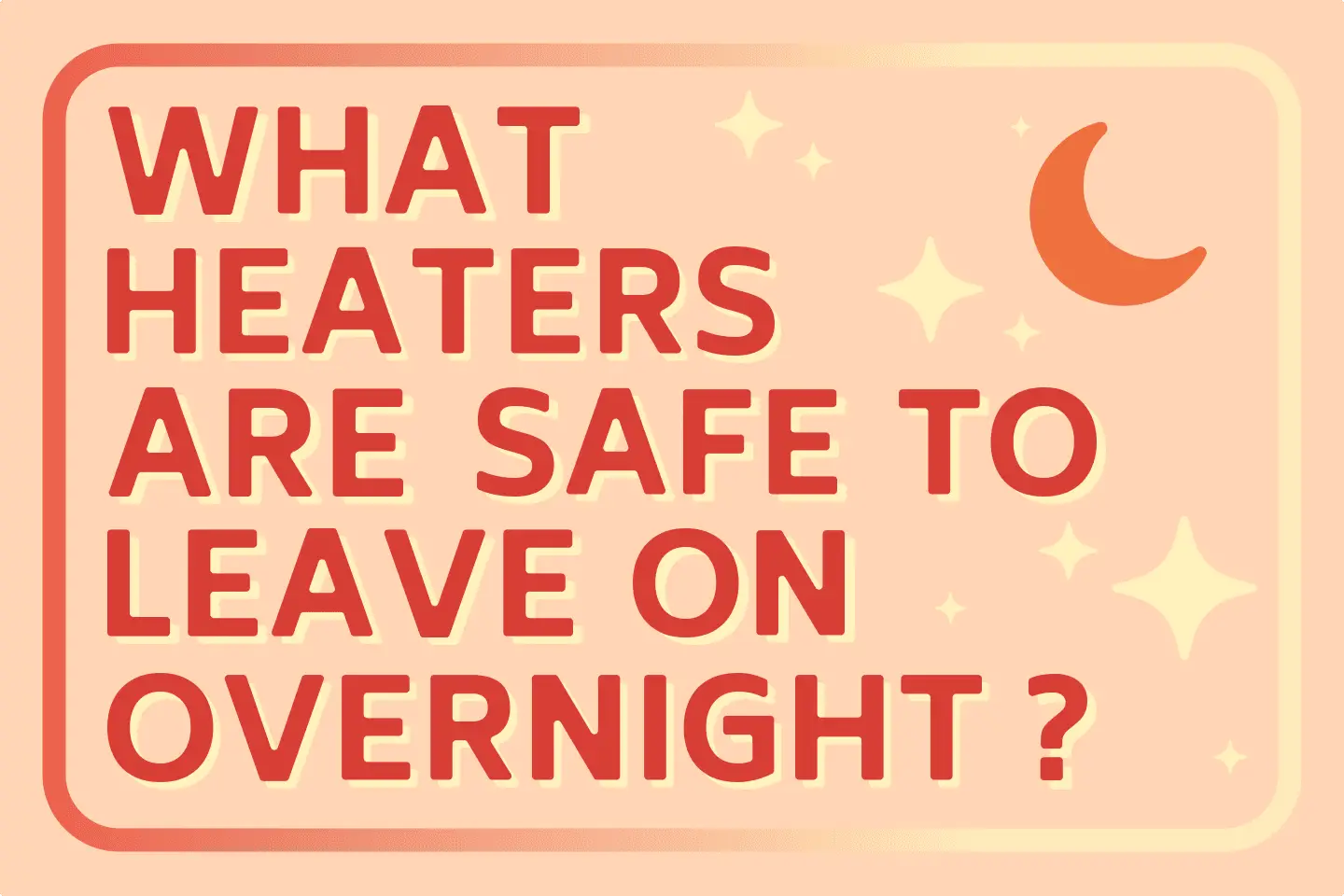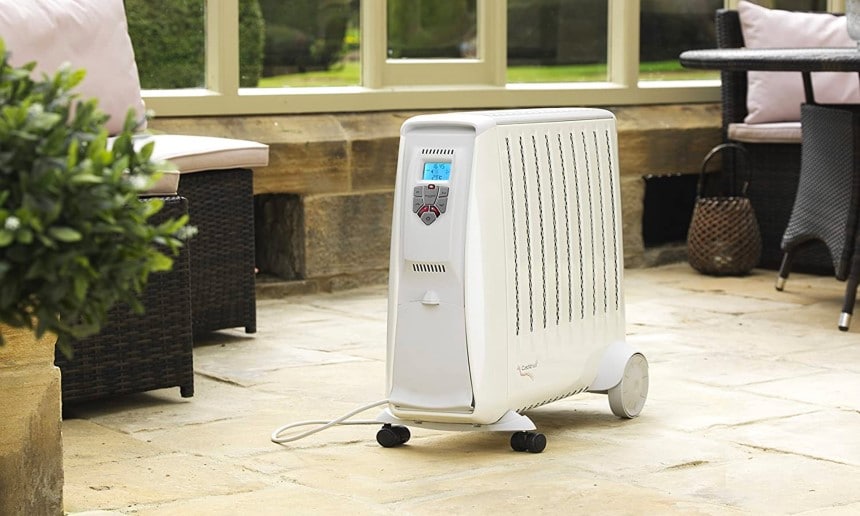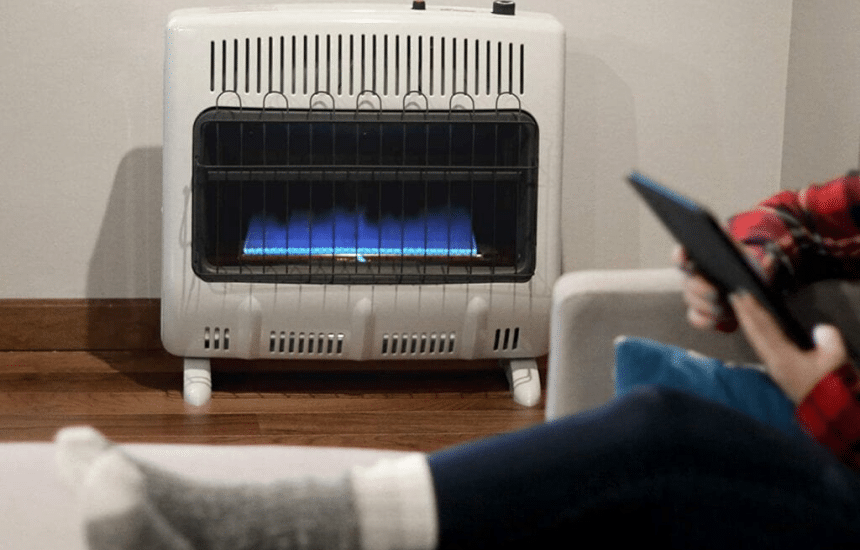Are Oil Heaters Safe To Leave On Overnight

As winter's chill deepens, many seek affordable ways to keep warm, turning to portable oil-filled radiator heaters. But a crucial question arises: are these heaters safe to leave on overnight?
This question is significant as improper use can lead to potential fire hazards or carbon monoxide poisoning, impacting countless households reliant on supplementary heating during the colder months. This article will explore the risks and safety precautions associated with using oil heaters overnight, drawing on expert advice and official safety guidelines.
Oil-filled radiator heaters, often called oil heaters, are electric heaters that warm oil inside their metal fins. The heated oil radiates warmth into the surrounding room. They are popular because they offer a relatively consistent and gentle heat output compared to forced-air heaters.
Understanding the Risks
The primary concern is the risk of fire. While oil heaters themselves don't produce flames, they can ignite flammable materials if placed too close. Curtains, blankets, furniture, and clothing are all potential fuel sources.
The U.S. Consumer Product Safety Commission (CPSC) advises maintaining a safe distance of at least three feet between any heater and flammable objects. They also warn against using extension cords, which can overload and overheat, increasing the risk of fire.
Another potential hazard, though less direct, is the risk of carbon monoxide poisoning. While oil heaters themselves do not produce carbon monoxide, using them in poorly ventilated spaces can indirectly contribute to the problem.
If a separate fuel-burning appliance, such as a gas furnace or stove, is also operating in the same poorly ventilated space, it could lead to a build-up of the deadly gas. Always ensure adequate ventilation when using any heating appliance.
Safety Precautions and Best Practices
To mitigate the risks, several safety precautions should be followed. First and foremost, always read and adhere to the manufacturer's instructions. These instructions provide specific guidance for safe operation of the appliance.
Ensure the heater is placed on a level, stable surface. This prevents it from tipping over and potentially igniting nearby materials. Never leave an oil heater unattended for extended periods, especially while sleeping.
Regularly inspect the heater for any signs of damage, such as frayed cords or cracked housing. If any damage is detected, discontinue use immediately and consult a qualified technician for repair or replacement.
It is important to remember that newer models often come equipped with safety features like automatic shut-off. This feature shuts off the heater if it overheats or tips over. While this offers a degree of protection, it is not a substitute for careful use and proper precautions.
Expert Opinions and Recommendations
Fire safety experts generally advise against leaving any space heater, including oil-filled radiators, unattended or operating while sleeping. The National Fire Protection Association (NFPA) strongly recommends turning off heaters when leaving a room or going to bed.
They emphasize the importance of smoke detectors. Functioning smoke detectors are critical for alerting occupants to a fire in its early stages. Test smoke detectors monthly and replace batteries at least once a year, or as recommended by the manufacturer.
“While oil-filled radiators are generally considered safer than some other types of space heaters, they still pose a risk if not used properly,” explains Captain John Smith, a fire safety officer with the local fire department. “Supervision is key to prevent accidents.”
Human Element and Real-Life Consequences
Stories abound of house fires caused by improperly used space heaters. These incidents highlight the importance of vigilance and adherence to safety guidelines.
One family lost their home after a blanket fell onto an oil heater left on overnight, sparking a fire that quickly engulfed the room. While thankfully no one was seriously injured, the experience underscored the devastating consequences of neglecting safety precautions.
These incidents serve as a stark reminder of the potential dangers associated with space heaters. Understanding the risks and following safety guidelines is crucial for protecting yourself and your loved ones.
Conclusion
While oil-filled radiator heaters can provide supplemental warmth, it's best not to leave them on overnight. The risk of fire, though lower than with some other types of heaters, is still present.
Prioritize safety by following manufacturer's instructions, maintaining a safe distance from flammable materials, ensuring proper ventilation, and never leaving the heater unattended, especially while sleeping. Install and maintain working smoke detectors.
By taking these precautions, you can minimize the risks and enjoy the warmth of an oil heater safely throughout the winter months. Prioritize your family's safety by using heating appliances with caution and following best practices.
